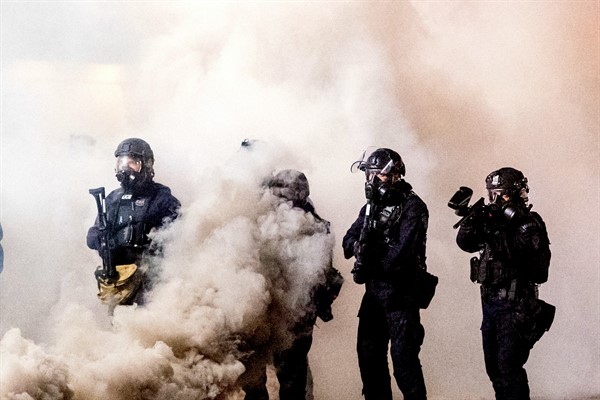Editor’s Note: Guest columnist Steven Metz is filling in for Judah Grunstein this week.
The Department of Homeland Security was created quickly in the traumatic year after the 9/11 attacks—a time when a fearful American public was desperate for anything that might make them safer. While the idea of an overarching organization to coordinate defending the U.S. homeland had floated around Washington for several years, 9/11 energized it. In November 2002, Congress passed the Homeland Security Act, combining 22 disparate federal departments and agencies linked only by their broad remit to deal with homeland security.
Like many other actions undertaken in the aftermath of 9/11, the creation of DHS was a visceral and hasty reaction to what was seen as a dangerous new world, cobbled together with inadequate analysis and thought. Its shortcomings soon became evident; within a few years, critics began calling for DHS to be redesigned or abolished. When Donald Trump was elected president and his administration set about refocusing DHS on domestic law enforcement, that criticism only increased. Now, the future of DHS hangs in the balance and will likely be determined by the November election.

